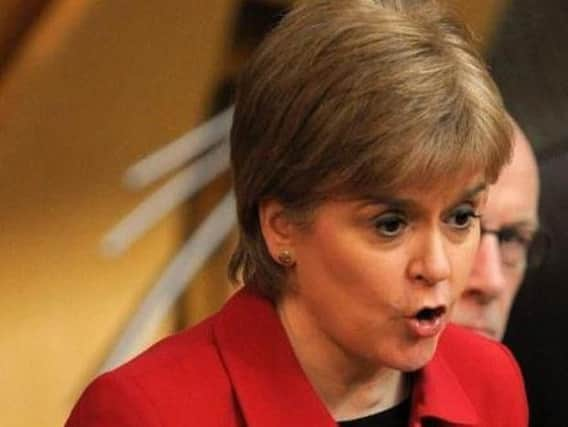Analysis: Scotland set for election on indyref2


Theresa May and the Conservative party will fight the forthcoming campaign hard - starting immediately - on Scotland's place in the UK following the Brexit vote.
Nicola Sturgeon is still awaiting a formal response from the Prime Minister on her request for a second independence referendum after Holyrood recently voted for a re-run of the 2014 vote. Well she effectively got it today. A majority of Scots voted to Remain in the EU in last year's referendum while the weight of votes south of the border swung the outcome in favour of Remain.
Advertisement
Hide AdAdvertisement
Hide AdThese events show how the political landscape has altered dramatically in the two-year-period since the last Westminster election. On that occasion, riding high on the back of the post-referendum surge in support, the SNP swept to a dramatic victory seizing 56 of Scotland's 59 seats.
With Nicola Sturgeon's party still riding high in the polls and poised for another emphatic triumph in next week's council elections, it would seem that another SNP victory north of the border in June seems inevitable.
But if UK and global politics are have been unpredictable in recent times, then Scottish politics have been positively volcanic.
The country is split on the constitution, but support for the UK and opposition to another referendum remains the majority view, albeit slim.
This is the issue that will dominate the forthcoming campaign, with the pro-union parties, set to urge their support to use it as a de facto verdict on demands for a second referendum. Could we even see Labour or the Liberal Democrats step back from campaigning - or even running - in some seats, to maximise the pro-union vote? In areas like Perthshire, Moray and Aberdeenshire Nationalists will feel under threat after the Tories made major inroads at last year's Holyrood election. Senior SNP figures like John Swinney and Richard Lochhead saw their hitherto healthy majorities slashed in these areas.
It seems likely that the SNP will still win most seats, but a significant decline from their unprecedented success two years ago would be seized on by the opposition parties as evidence of a change in the public mood. Even were the SNP to fall below 40 seats, a huge success in other times, it's not hard to see the Tories pointing to more than a dozen lost seats as evidence that Scots are fed up with the Nationalists tactics over the Brexit issue. Not only was Ms Sturgeon threatening to vote down the legislation of the Great Repeal Bill at Holyrood, the First Minister was also gearing up for a major battle over a Westminster "power grab" over the return of powers from Brussels.
The SNP are also facing the headache of finding new candidates in two key seats.
In Glasgow East, Natalie McGarry is also no longer an SNP representative and facing charges of embezzlement in relation to funds for the Women for Independence campaign at the last election. Michelle Thomson in Edinburgh West is no longer representing the party, but sits as an independent after allegations emerged surrounding land deals which her firm was involved in. A report on the matter in now with prosecutors.
Advertisement
Hide AdAdvertisement
Hide AdThe Edinburgh seat is an interesting bellweather as the Liberal Democrats pulled off a shock win at the Holyrood election to take the equivalent seat from the SNP last year, perhaps indicating that the forthcoming election north of the border may not be as straightforward as polls suggest.